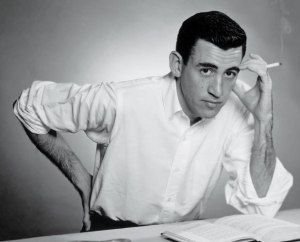
Holden Caulfield, who is not necessarily the most misanthropic character in Salinger’s arsenal (it might actually be Seymour Glass), finds himself expelled from a Pennsylvanian prep school just in time for his Christmas vacation. He flees to New York City a few days earlier than he’s supposed to for the break. The vibe of New York just as the holidays are upon it is one of hopefulness and happiness, two sentiments in direct contrast to Caulfield’s overall persona. It is entirely possible that this was a deliberate choice on the part of Salinger not only for the sake of paradox but also for his own personal contempt for his birthday being during a time of year that holds so many expectations.
http://youtu.be/1ky4GTU2El0
Among other of Salinger’s stories, “Franny” centers around a member of the Glass family who has become preoccupied with achieving a higher purpose by repeating the Jesus Prayer from a book entitled The Way of a Pilgrim. Through the repetition of the mantra, “Lord Jesus Christ, have mercy on me,” Franny’s hope is, in saying this over and over again internally, it will become as natural to her as the beat of her pulse. This facet of the story is something of an homage to the spirituality of Salinger’s birthday, which falls so close to that of Jesus Christ’s. However, instead of the mantra succeeding in helping her mental health, it only serves to help break it down. Franny’s failure in becoming closer to God through this method is yet another way in which Salinger refused to give in to the notion that it’s possible to start fresh–for we’re all doomed from the beginning. And so, it is almost as though he possessed a personal vendetta against the possibility of becoming better.
Salinger’s natural predilection for expressing contempt through his characters is constant throughout all of his work. And, whether he was conscious of it or not, it would appear that being born on New Year’s Day had something of an influence on this need to negate the reinvigorated buoyancy that goes hand in hand with a day in which we’re all granted permission to start anew.



















